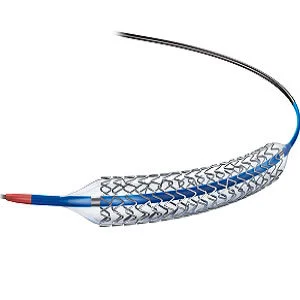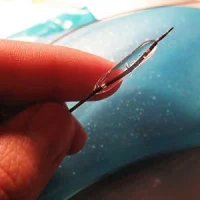A systemic review published in American Heart Journal shows the utility of intravascular ultrasound (IVUS)-guided percutaneous coronary intervention (PCI) for drug-eluting stent (DES) implantation in patients with complex coronary lesions. IVUS-guided PCI for complex lesions is associated with a significant reduction in major adverse cardiac events, according to the review published in American Heart Journal.
See Also: Stents as Safe as Bypass Surgery for Left Main Heart Disease
Chirag Bavishi, MD, MPH, of Mount Sinai St. Luke's & Mount Sinai West Hospitals, New York, NY and colleagues performed a systematic review and meta-analysis of all available randomised trials to investigate the efficacy of routine IVUS-guided PCI compared with angiography-guided PCI for DES implantation. For this review, the researchers focused on complex coronary lesions, defined as long coronary lesions or those requiring =4 stents, small vessels, bifurcation lesions, chronic total occlusions (CTOs), and other complex lesions as defined by the individual trials.
Eight trials involving 3,276 patients (1,635 IVUS-guided and 1,641 angiography-guided) enrolling only patients with complex lesions were included in the analysis. Mean follow-up was 1.4 ± 0.5 years. The review team found that, compared with angiography-guided PCI, patients undergoing IVUS-guided PCI had significantly lower major adverse cardiac events (RR 0.64, 95% CI 0.51-0.80, P = .0001), target lesion revascularisation (RR 0.62, 95% CI 0.45-0.86, P = .004), and target vessel revascularisation (RR 0.60, 95% CI 0.42-0.87, P = .007).
IVUS provides information about reference vessel dimensions and lesion characteristics such as severity, length, and morphology that are poorly appreciated by coronary angiography. As such, IVUS may be used to optimise stent deployment and identify stent-related complications.
"The benefits of IVUS in reducing the need for subsequent revascularisation likely accrue from its ability to facilitate improved stent expansion and to minimise geographic miss and undetected edge dissections, collectively the greatest correlates of restenosis after bare-metal stent and DES implantation," the authors write.
The review team also notes that IVUS-guided PCI helps in detection of stent-related complications such as incomplete stent apposition, incomplete lesion coverage, edge dissections, stent fracture, tissue protrusion, and residual thrombus, findings that are often inapparent by angiography.
While the findings "strongly support the role of IVUS guidance to improve the efficacy of DES implantation," the reviewers say further studies are warranted to determine whether IVUS enhances the safety (MI, stent thrombosis, and death) of PCI in the contemporary DES era.
Additional studies are needed to determine the utility of IVUS guidance for DES implantation in noncomplex lesions, the authors add.
Source: American Heart Journal
Image Credit: Wikimedia Commons
References:
Bavishi C, Sardar P, Chatterjee S, Rahman Khan A, Shah A, Ather S, Lemos PA, Moreno P, Stone GW (2017) Intravascular ultrasound–guided vs angiography-guided drug-eluting stent implantation in complex coronary lesions: Meta-analysis of randomized trials. Am Heart J, 185: 26-34.
Latest Articles
Intravascular Ultrasound-guided PCI, intravascular ultrasound, percutaneous coronary intervention, drug-eluting stent
A systemic review published in American Heart Journal shows the utility of intravascular ultrasound (IVUS)-guided percutaneous coronary intervention (PCI) for drug-eluting stent (DES) implantation in patients with complex coronary lesions.










